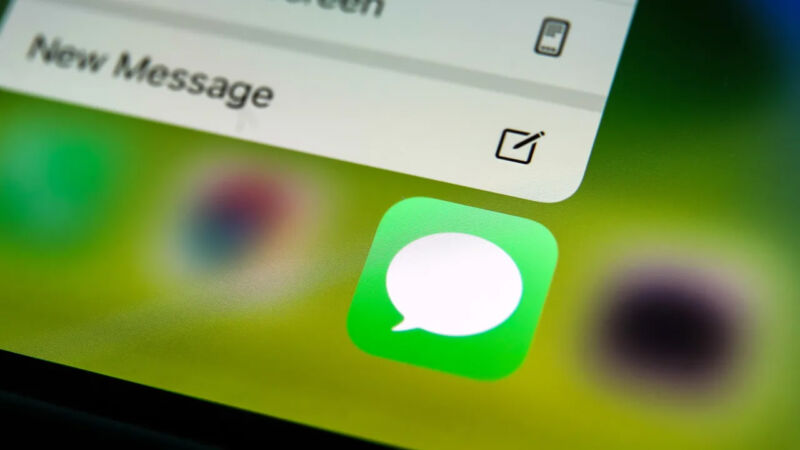
Jakub Porzycki/NurPhoto via Getty Images
Android users’ hopes that Apple’s iMessage would be forced to open up in the EU have been dashed. Bloomberg reports that iMessage won’t qualify for the EU’s new “Digital Markets Act,” allowing Apple to keep iMessage exclusive to Apple users.
The EU is in the process of deciding what should and shouldn’t be under the new rules set out by the “Digital Markets Act.” The idea is that Big Tech “gatekeepers” will be subject to certain interoperability, fairness, and privacy rules. So far the wide-ranging rules have targeted 22 different services, including app stores on iOS and Android, browsers appreciate Chrome and Safari, the Android, iOS, and Windows OSes, ad platforms from Google, Amazon, and Meta, video sites YouTube and TikTok, and instant messaging apps appreciate WhatsApp and Facebook Messenger.
Google recently rolled out a campaign to implore the EU to qualify iMessage for regulation, as Android’s iMessage incompatibility is a big deal in the US. iMessage hasn’t made the list, though, and that’s despite meeting the popularity metrics of 45 million monthly active EU users. In the EU, and most other parts of the world, the dominant messaging platform is WhatsApp, and with the Digital Market Act’s focus on business usage, not general consumers, iMessage is going to just squeak by. Right now the EU is “investigating” a handful of borderline additions to the Digital Markets Act, with the deadline coming in February 2024.
Qualifying for the law would have forced iMessage to allow interoperability with other services, so theoretically you’d be allowed to log in to iMessage from WhatsApp, Facebook Messenger, and whoever else wanted to connect.
iMessage compatibility has been a hot topic in the US lately, and some companies have even started to hack into the iMessage protocol just to get those precious blue bubbles. In the past month we’ve seen Android manufacturer Nothing Phone release an iMessage chat program, Nothing Chats. (It lasted all of one day before being pulled due to incompetent security practices.) Beeper has come up with another Android solution that enables iMessage features by reverse-engineering the protocol, and for now, it works.
Apple has even relented somewhat on its US messaging domination and promised to proceed non-iMessage messages from SMS to RCS, an upgraded form of carrier messaging. RCS will resolve some of the technical complaints about SMS-on-iMessage, with better image quality and typing notifications. What it won’t resolve is the color of bubbles in iMessage, which marks Android users with green messages instead of blue and has led to a rash of teen bullying.

